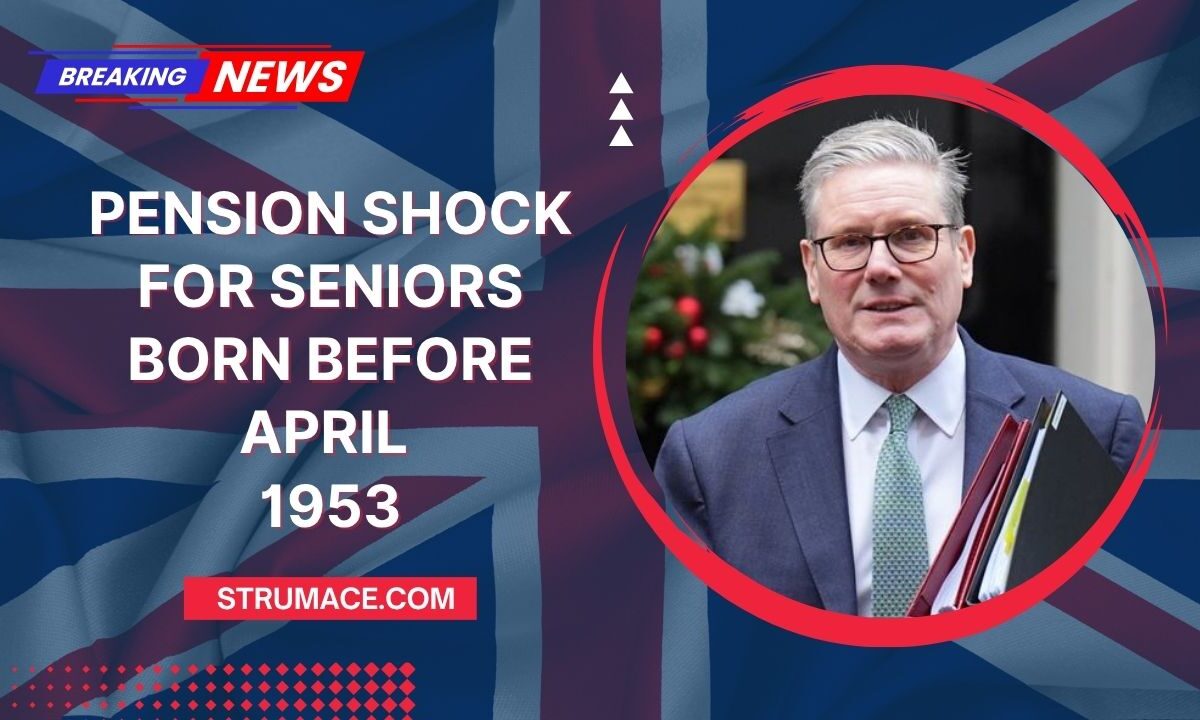The Department for Work and Pensions (DWP) has revealed that millions of older pensioners are receiving significantly less in state pension payments than those who retired later.
If you were born before specific cutoff dates, you may be missing out on up to £2,797.60 annually—despite qualifying for the full pension under the older scheme.
Who Is Affected by This Pension Disparity?
The UK state pension system is currently split between two schemes:
- Basic State Pension – For men born before April 6, 1951, and women born before April 6, 1953.
- New State Pension – For those born after the dates above.
This division means older retirees—especially those in their late 70s or 80s—receive lower weekly payments than younger pensioners.
Side-by-Side Pension Comparison
| Category | Basic State Pension | New State Pension |
|---|---|---|
| Eligibility Age | Men: Born before 06/04/1951 | Born after 06/04/1951 (men & women) |
| Women: Born before 06/04/1953 | ||
| Weekly Full Amount (2025) | £176.45 | £230.25 |
| Annual Full Amount | £9,175.40 | £11,973.00 |
| Annual Gap | — | £2,797.60 more |
| Qualifying NI Years | 30–44 (Men), 30–39 (Women) | 10 min, 35 for full amount |
Why the Gap Exists
The pension gap stems from structural differences in how the two schemes were designed. The basic State Pension was calculated with a smaller base rate and required complex additions like SERPS and Pension Credit to top it up.
The new State Pension, introduced in 2016, was simplified and set at a higher flat rate.
Even after the recent 4.1% pension rise in April 2025 (based on the Triple Lock rule), the inequality remains:
- Basic Pension increased by £360 per year
- New Pension increased by £470 per year
This means older retirees are still £2,797.60 worse off per year, even with the latest uprating.
What Role Does National Insurance Play?
For those receiving less than £176.45 or £230.25 per week, the likely reason is incomplete National Insurance (NI) contributions.
Here’s what you need to know:
- Basic Pension Full Eligibility:
- Men born 1945–1951: 30 NI years
- Men born before 1945: 44 NI years
- Women born 1950–1953: 30 NI years
- Women born before 1950: 39 NI years
- New Pension Full Eligibility:
- At least 10 years for minimum payout
- 35 years for full £230.25/week
You can top up NI years or check your NI record to ensure your entitlement is accurate.
Are You Missing Out?
An estimated 8.57 million pensioners are currently on the basic scheme, according to House of Commons Library data. This makes up the majority of claimants and means millions are missing out on a significant amount each year.
The DWP has not announced any direct equalisation measures, meaning the discrepancy may continue for the foreseeable future.
State pensioners born before April 1951 (men) or April 1953 (women) are at a substantial disadvantage—missing out on nearly £2,800 per year despite often having made more National Insurance contributions.
While increases are applied each April, they do little to close the widening gap between the basic and new state pension schemes.
If you’re nearing retirement or already claiming the basic pension, now is the time to review your NI record, explore options to boost your entitlement, and stay updated on future changes from the DWP.
FAQs
Why are some pensioners missing out on nearly £2,800 a year?
Because they’re on the basic State Pension, which pays significantly less than the new State Pension, even with full eligibility.
Who qualifies for the new State Pension?
Men and women born after April 5, 1951 (men) and April 5, 1953 (women) qualify for the new, higher-rate pension.
Can I increase my pension if I’m on the basic scheme?
Yes, by checking and topping up NI contributions, or through additional benefits like Pension Credit if eligible.




